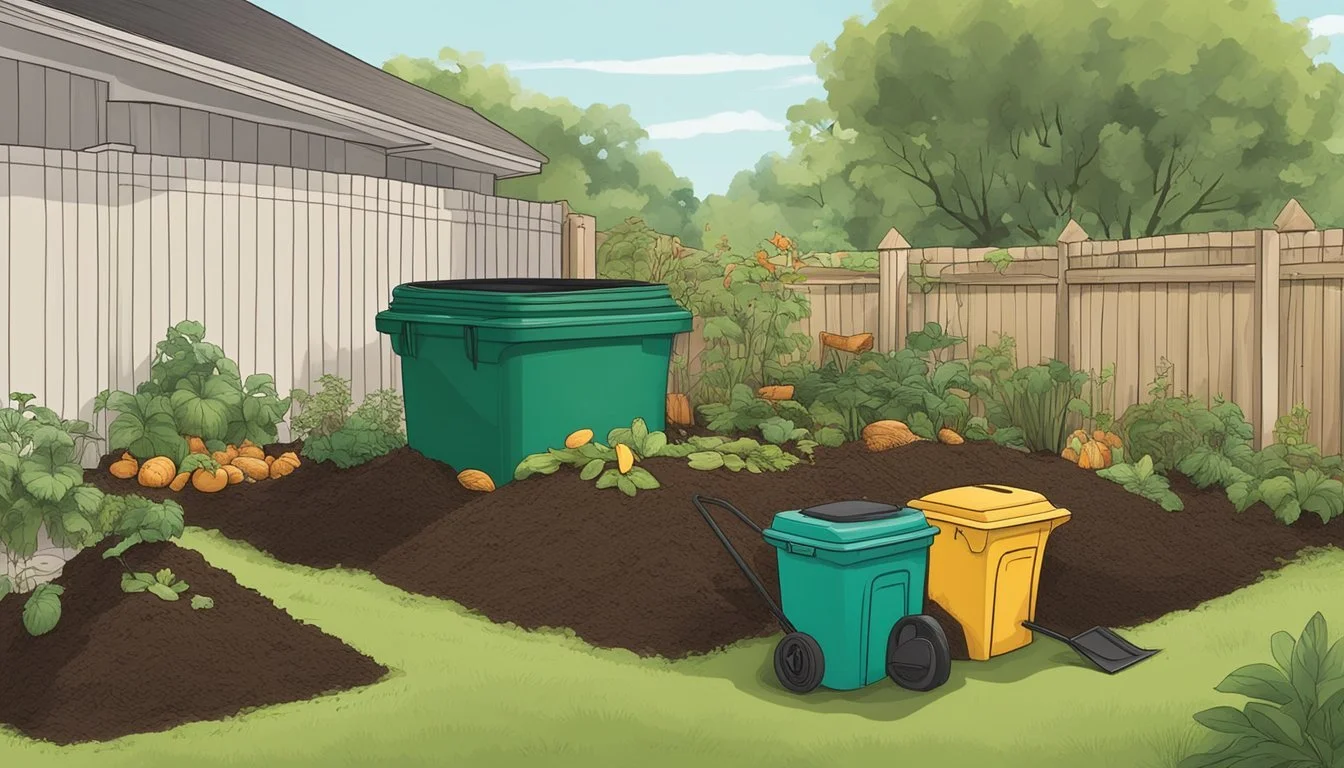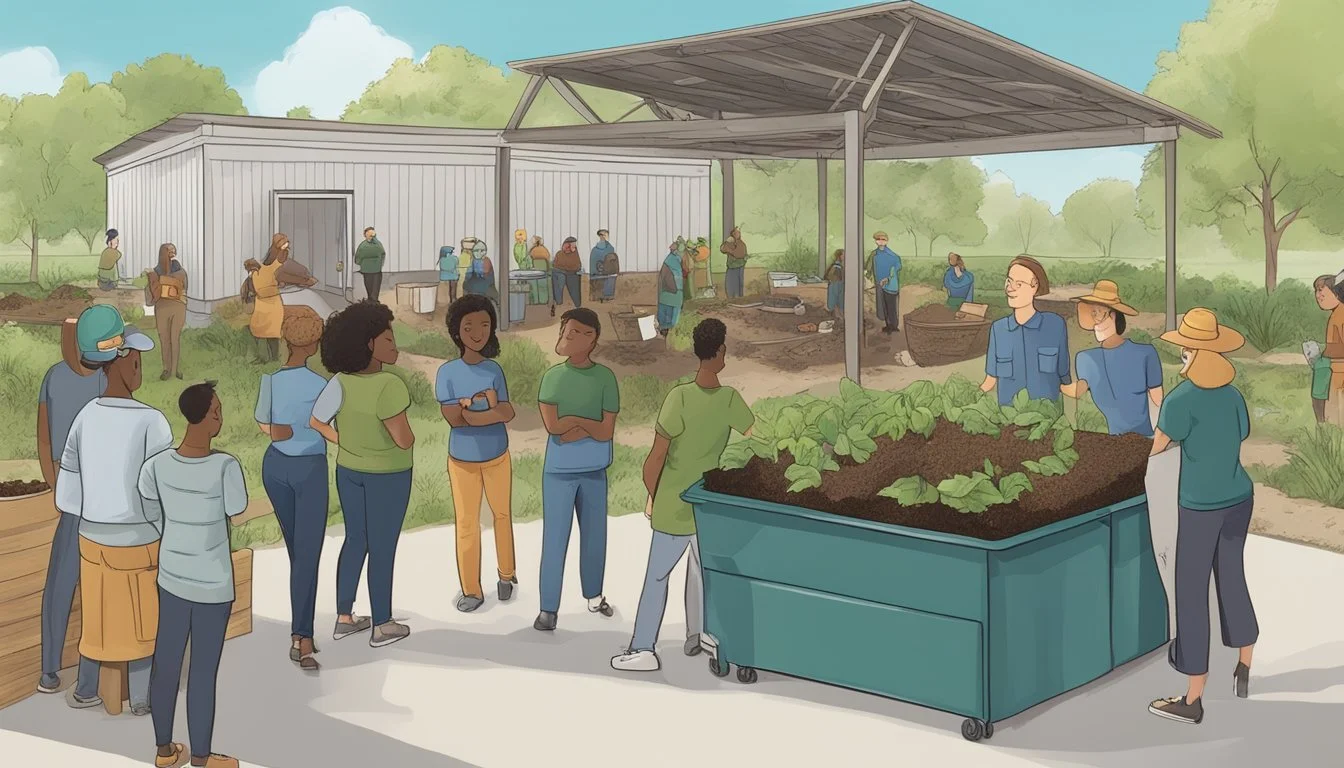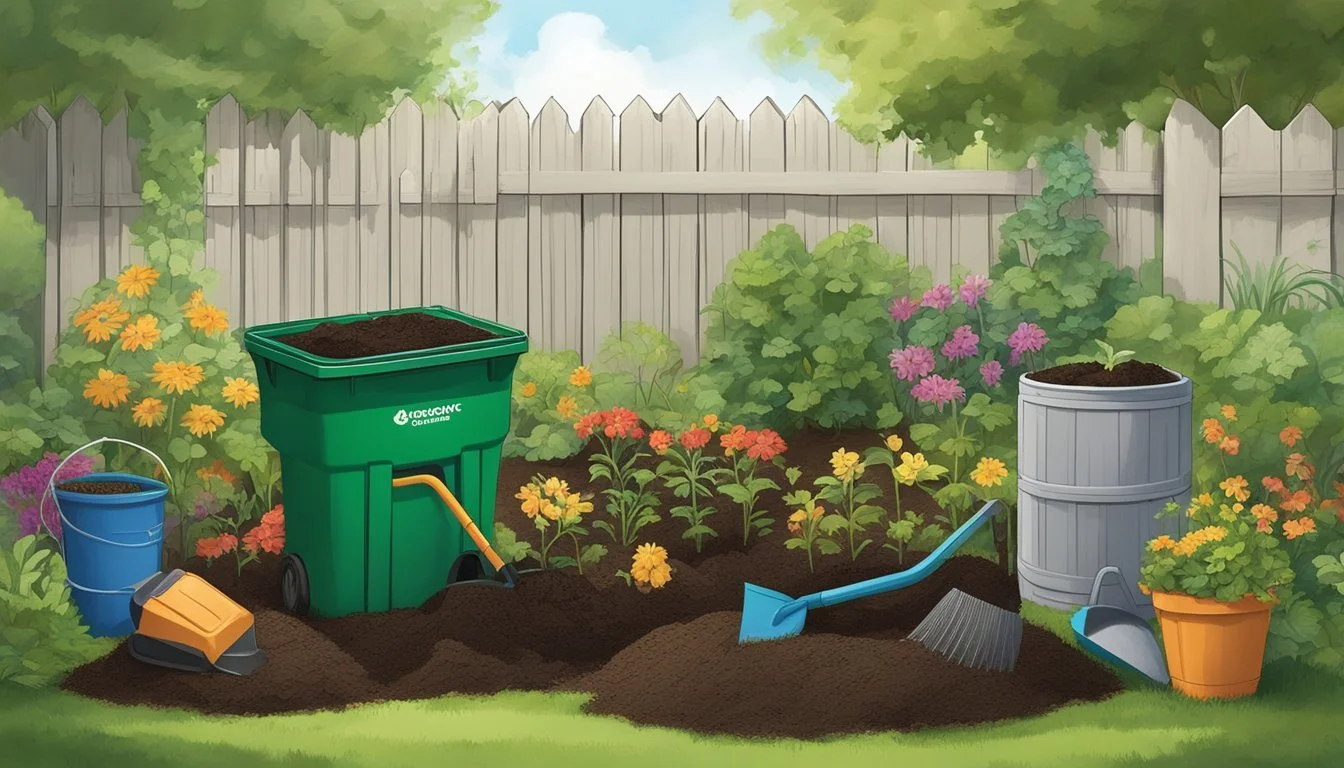Guide to Composting in Lafayette, LA
Mastering Waste Reduction & Soil Enrichment
Composting in Lafayette, LA, offers residents an effective way to engage in environmental stewardship while managing yard and kitchen waste. Lafayette’s compost initiatives take advantage of the natural process of organic decay to convert "green waste" such as tree branches, grass clippings, and shrub trimmings into a nutrient-rich soil amendment. The local community benefits from this sustainable practice through reduced landfill waste and stable garbage disposal rates, and the compost produced is made available to the citizens, enhancing soil quality and garden health across the region.
The Dean Domingues Compost Facility is a cornerstone of these efforts, accepting and processing green waste that is then repurposed into compost. This facility not only supports the city's waste management strategy but also provides a valuable resource for local gardeners and landscapers. With a focus on reducing the city's ecological footprint, the composting program in Lafayette plays a critical role in promoting a greener, more sustainable environment.
The Basics of Composting
In Lafayette, composting is an essential activity that transforms organic waste into valuable fertilizer, contributing to soil health and reducing landfill usage. This section will explore the core principles of composting and its positive impact on the environment.
What Is Compost?
Compost is a nutrient-rich soil amendment produced through the natural decomposition of organic materials. The process involves the breakdown of yard waste, food scraps, and other biodegradable items into a dark, crumbly substance that can be added to soil. Lafayette's commitment to sustainability is evident in its support for community composting initiatives, ensuring that organic materials are responsibly repurposed rather than ending up in landfills.
Benefits of Composting
Composting provides numerous environmental benefits. Firstly, it enriches the soil, bolstering its water-holding capacities and nutrient content. This, in turn, supports healthier plant growth without the need for chemical fertilizers. Additionally, composting is key to Lafayette's Climate Action Plan, helping to reduce greenhouse gas emissions by limiting the methane produced in landfills. By participating in composting, residents play a critical role in carbon sequestering, capturing carbon in the soil rather than allowing it to contribute to atmospheric CO2 levels. With every compost heap, Lafayette takes a step towards ecological balance and sustainability.
How to Start Composting in Lafayette
Starting a composting routine in Lafayette involves understanding the community's guidelines, selecting an appropriate composting method, and preparing a suitable location for your compost setup. Residents interested in reducing their environmental impact can make significant strides by properly managing food waste, yard waste, and other compostable materials.
Understanding Local Regulations
Lafayette Consolidated Government has specific rules in place for composting. It's essential to be aware of these regulations to ensure that your composting activities are in compliance. Information on composting regulations can be found on the Compost Facility - Main menu website, where guidelines for acceptable green waste are detailed. Before initiating your composting, confirm whether certain materials are allowed or if there are restrictions on how composting should be conducted in your area.
Choosing a Composting Method
Decide on a composting method that fits your living situation. In Lafayette, residents have options that range from backyard composting vessels for green and food waste to worm composting systems for indoor use. Your choice should be based on the amount and types of waste you plan to compost, the space available at the back of your house, and how involved you want to be in the process. Remember, the selected method must be able to handle the typical yard waste, food waste, and green waste generated by your household.
Setting Up Your Composting Area
Once you have chosen your composting method, it's time to set up your composting area. This location should ideally be in a dry, shady spot near a water source. For a composting vessel, you'll need a container that is large enough to allow for proper aeration and turnover of composting materials. It should be easy to access for adding new waste and for removing finished compost. Make sure that the site is also convenient for routine maintenance and that it doesn't bother your neighbors or violate any consolidated government regulations.
Composting Facilities in Lafayette
Lafayette, Louisiana, is home to facilities and services designed to make composting accessible for its citizens, such as the Dean Domingues Compost Facility and free compost distribution programs.
Dean Domingues Compost Facility
Located at 400 Dugas Road, the Dean Domingues Compost Facility is a pivotal site for Lafayette's green waste processing. Managed by the Department of Public Works, it accepts tree waste including branches, processed wood, lumber, and even root balls. These materials are then transformed into a soil enriching compost. Residents should note that the facility's hours of operation are conducive for drop-offs, and those experiencing mechanical issues are advised to contact the facility at 337-291-5637 for assistance.
Compost Pickup and Drop off
Citizens of Lafayette have the option to either drop off their green waste or utilize pickup services. When opting for the drop-off service, residents can bring their green waste to the compost facility. The accepted vehicles for transport include pickup trucks, trailers with an enclosed back, or any other appropriate vehicle. It's recommended that those dropping off waste bring their own shovel for convenience.
Obtaining Free Compost
The Lafayette Consolidated Government endeavors to support its citizens' gardening and landscaping needs by offering free compost. Availability is from 7:30 a.m. to 3:00 p.m., and citizens can collect up to half a cubic yard of compost. This initiative ensures that the nutrient-rich end-product of the city's composting process is put to good use, enhancing local soil quality and supporting environmental sustainability.
Best Practices for Residential Composting
Effective composting requires a good mix of green and brown materials, a balanced level of moisture, and routine maintenance. Lafayette residents can improve their gardens and reduce landfill waste by managing their compost properly.
Maintaining Your Compost
A successful compost pile needs to be turned regularly to ensure oxygen reaches the decomposing materials. Residents should aim to turn their compost every 1-2 weeks using a pitchfork or a specialized compost aerator. Moisture is also crucial—it should feel like a wrung-out sponge. If the compost is too dry, adding water can help, but it's important to avoid overwatering. Should mechanical issues arise with compost machinery, timely troubleshooting is advisable to keep the composting process on track.
Compostable Materials
It's essential to know what should and shouldn't go into the compost bin. For a healthy compost mix:
Green Materials (Nitrogen-rich)
Vegetable and fruit scraps
Coffee grounds and filters
Fresh grass clippings
Brown Materials (Carbon-rich)
Dry leaves
Shredded paper and cardboard
Sawdust from untreated wood
Straw and hay
Residents should conduct a regular waste audit to determine the ratio of compostable items and food waste they generate, helping them balance green and brown materials in their compost container(s).
Composting Challenges
Composting in residential areas can sometimes attract pests or produce unwanted odors. To minimize these issues, meat, dairy, and fats should be excluded from the compost pile. Incorporating a suitable balance of green and brown materials can reduce smells and deter rodents. In addition, selecting the right type of container, whether a covered bin or a tumbler, can provide a barrier and further mitigate these common challenges.
Community Involvement and Education
In Lafayette, LA, community involvement and education play pivotal roles in enhancing sustainability and waste diversion efforts through composting. Structured workshops and the active participation of organizations like Lafarm bolster the city's diversion rate and contribute to a sustainable food loop.
Workshops and Resources
The Lafayette Consolidated Government vigorously supports composting initiatives, offering educational workshops and resources to the public. Residents can gain practical knowledge on composting by attending these sessions, which are aimed at reducing landfill use and improving sustainability. Specifically, the Environmental Outreach and Education program provides insights on how composting can lead to savings on garbage bills and contribute to environmental health. This proactive approach to waste diversion equips citizens with the information they need to transform organic waste into valuable compost.
Lafarm's Role in Composting
Lafarm, a key player in Lafayette's composting landscape, exemplifies the city's commitment to sustainability. By repurposing campus food waste into compost, Lafarm creates a sustainable food loop that benefits both the environment and the community. They adeptly integrate produce scraps into their composting process, reinforcing a cycle of sustainability that minimizes waste and nourishes future crops. The resulting impact on the community's diversion rate is significant, making Lafarm a model for effective, eco-conscious waste management.
Improving the Ecosystem Through Composting
Composting in Lafayette, LA contributes significantly to ecosystem sustainability by enhancing soil quality and reducing landfill waste. This practice also plays a pivotal role in the city's climate action efforts through carbon sequestering.
Impact on Landfills
Reducing the flow of waste into landfills is a critical step towards environmental sustainability. In Lafayette, the composting program enables citizens to divert organic waste from landfills, which in turn reduces methane emissions, a potent greenhouse gas. Methane production occurs when organic waste decomposes anaerobically (without oxygen) in landfills. By composting organic materials, Lafayette not only minimizes this harmful emission but also repurposes biodegradable waste into nutrient-rich compost that improves soil health and fertility.
Composting and Climate Action
Composting is more than managing waste; it's a strategic tool in Lafayette's climate action plan. When incorporated into soil, compost improves its water-holding capacity, which can reduce water usage and runoff. Moreover, composting aids in carbon sequestering — the process of capturing and storing atmospheric carbon dioxide. It does so by increasing the soil's organic carbon content, turning it into a "carbon sink" that removes carbon from the atmosphere. This action contributes to the mitigation of climate change impacts and promotes overall environmental balance. Lafayette recognizes the value of these practices, as reflected in their commitment to increasing sustainability efforts to achieve notable diversion rates from landfills.
Conclusion
In Lafayette, composting is a critical component in advancing sustainability and reducing landfill reliance. It completes the sustainable food loop by transforming green waste into nutrient-rich soil.
Summary of Benefits
Composting greatly benefits Lafayette by turning organic waste that would otherwise contribute to landfill growth into valuable compost. The process is beneficial because:
It stabilizes garbage disposal rates, as less waste requires processing and disposal.
It reduces landfill waste by diverting organic materials, thereby extending landfill longevity and reducing methane emissions.
It contributes to sustainability by providing local gardens and farms with rich soil, which promotes sustainable food production.
It closes the sustainable food loop, with food waste and green waste contributing to the creation of compost that, in turn, nurtures the growth of new produce.
Composting in Lafayette stands as a prime example of how communities can efficiently manage waste and foster environmental responsibility.








